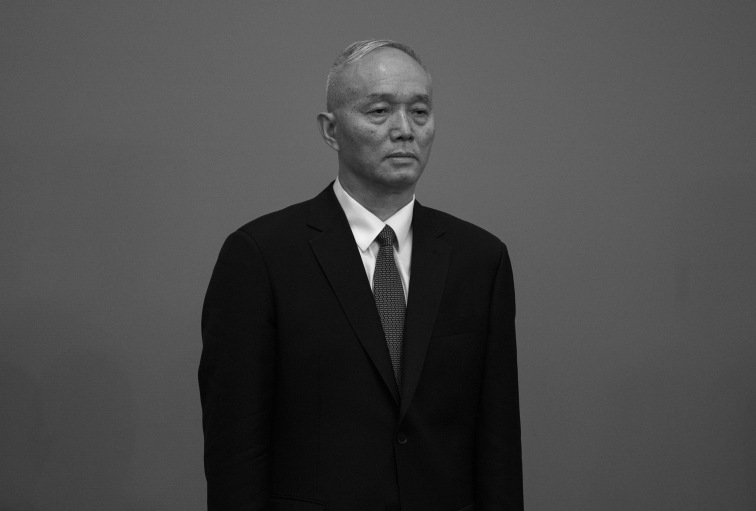The Nation is Full of Cameras
[People News] Chinese actor Yu Menglong tragically fell to his death on September 11. The lack of official information regarding the case has led to a surge in public speculation, with netizens actively searching for the truth. Various theories have circulated, many of which implicate high-ranking officials in the Chinese Communist Party. On September 21, the Beijing police finally released a statement, declaring that Yu Menglong's death was an accidental fall due to intoxication, and they took action against three netizens for spreading misinformation. Despite this, many in the online community remain sceptical. Domestic channels for expression have been completely restricted, while netizens abroad continue to advocate for Yu Menglong.
As reported by the Southern Metropolis Daily, the Chaoyang Branch of the Beijing Public Security Bureau issued a statement on September 21 regarding the incident, confirming that a 37-year-old man named Yu fell to his death after drinking. The statement accused certain individuals of fabricating and disseminating false information and videos online to gain attention, which severely disrupted public order.
The statement also revealed that Zheng, Yuan, and Xu are currently under investigation, and several other individuals accused of spreading rumours have also faced consequences.
Additionally, the statement claimed that the investigation results regarding Yu Menglong's fall were communicated to his family. It noted that the police promptly initiated an investigation following the incident, which included reviewing surveillance footage, conducting forensic examinations, and ruling out homicide, with the family reportedly expressing no objections to the findings.
According to information shared by domestic netizens on overseas X platform, after the police incident report was released, all comments were in support of the police, while posts calling for justice for Yu Menglong (于朦朧) were silenced. This led to widespread outrage among netizens on the overseas X platform, ignited by the police announcement.
"The police investigated for ten days and ultimately arrested three netizens."
"If the problem cannot be resolved, then those who raise the issue will be dealt with."
"During these ten days, the police were not investigating the case; they were investigating the netizens instead."
"The death of Lei Yang (雷洋) was also a case of the police spreading rumours, acting without restraint, and covering everything with one hand."
"Once credibility is lost, even if the claims are true, no one will believe them."
"The blue background and white text used for comment control on domestic social media have become less credible."
"This announcement arrests individuals without revealing any details of the case, serving as a warning to the public not to speak carelessly."
"First, they arrest a few rumour-mongers, then the internet water army, red V accounts, and marketing accounts start to delete their posts, while all those who question are permanently banned. In less than half a month, this issue will be forgotten; this operation is as smooth as speaking one's mother tongue."
"Without filing a case or conducting an investigation, they already know it's a rumour; who would still dare to trust the blue background and white text in the future?"
"Deleting comments too early and banning individuals definitely indicates something is amiss; if there were no expectations, this wouldn't be possible."
"Li Wenliang (李文亮) was also once reprimanded by the police for spreading rumours. Chinese people understand each other best; when the police make arrests, it suggests that the matter must be true."
"Who still remembers the pandemic at that time? They also initially arrested a few people for spreading rumours..."
"Interestingly, the police do not 'report' the details of the case but do 'report' on public sentiment."
Netizens have analysed that 'the logic is actually quite simple. The fact that the police can apprehend 'rumourmongers' indicates that they understand what constitutes a 'rumour'. Since they are aware of what a 'rumour' is, there must be established facts or truths that serve as the basis for their judgments. Given this, why don't the police, who possess knowledge, evidence, and the truth, openly release an official 'police report' to clarify the situation? When something seems off, there is likely something amiss.'
Another netizen pointed out that 'the crux of the Yu Menglong (于朦朧) incident is no longer about the actual truth, but rather about how the authorities choose to disclose the 'truth'. For cases that raise public concerns, 1. Should the authorities launch a special investigation in response to public worries? 2. When the authorities release the investigation results, should they also provide details of the investigation process for public review? If a special investigation is initiated this time due to public concerns, will this become a standard practice for future cases? This is what the authorities are most apprehensive about!'
Netizens assert that determining whether something is factual is quite straightforward; it hinges on the extent of censorship imposed by domestic platforms. Often, debunking a rumour can itself be a form of rumour-mongering, and rumour-mongering can also serve as a means of debunking a rumour!
△











News magazine bootstrap themes!
I like this themes, fast loading and look profesional
Thank you Carlos!
You're welcome!
Please support me with give positive rating!
Yes Sure!